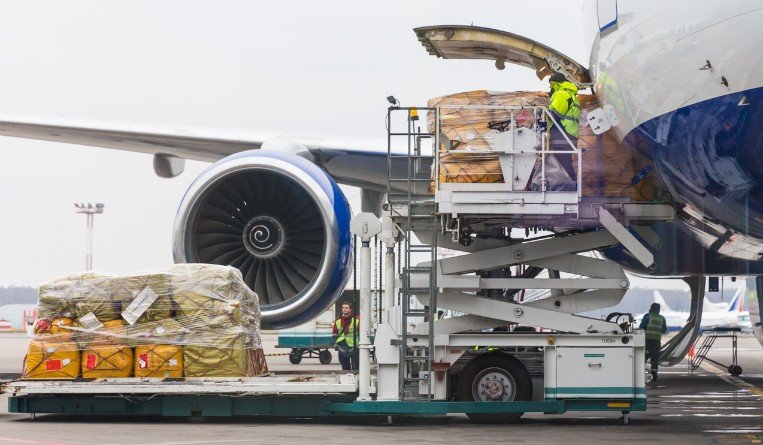Recent changes to International Civil Aviation Organization (ICAO) regulations with big implications for air cargo operators were outlined during an IATA webinar on lithium batteries late last year.
Effective November 5, 2020, Annex 6, which covers the operations of aircraft, debuted a new Chapter 15 on Cargo Compartment Safety, creating new responsibilities for operators.
The new rules require operators to establish policies and procedures for items being carried in the cargo compartment. Operators now have to ensure with reasonable certainty a fire can be detected and suppressed until the plane makes a safe landing.
More specifically, the state where the operator is located shall ensure the operator establishes policies and procedures, including a specific risk safety assessment. The assessment must consider the specific hazards of items being carried, the capabilities of the operator as well as those of the plane and its system and operational considerations. Also part of it are containment characteristics of ULDs, packing and packaging quantity, the distribution of dangerous goods and the safety of the supply chain.
And it has to be done – there is no getting away from what is potentially a hefty set of obligations, speakers noted. “The operator has got to establish these policies,” Geoff Leach, director of The Dangerous Goods Office, a specialist training and consultancy firm, told the webinar.
Adding to the workload, ICAO’s Guidance as outlined in Document 10102 states operators should have “procedures in place for monitoring the effectiveness of its management controls for ensuring nothing contained in cargo will endanger an aircraft.” (As Leach noted, this requirement sets “a very high bar” for operators.)
Additionally, “an operator may wish to consider the quantity of individual cells to be transported on a single aircraft.” The obvious flaw with this was noted by Leach, who remarked: “I have no idea how that would be done.”
Not surprisingly, there is wide agreement as to the high level of responsibility being put on the operators. “How far down the supply chain do you go? Do you go down to individual components?” asked Nigel Patience, a corporate safety manager at British Airways.
The other big issue coupled to this is the obvious one: How do operators, and others in the supply chain, deal with parcels either undeclared or misdeclared? One way is widespread cooperation. “We can’t do it in isolation. We need to work with all the areas of the supply chain,” said Patience.
For its part, British Airways is using a three-tier approach: experience: risk and intelligence.
In terms of the first, the example Patience gave was of a consignment from Shenzhen which was sent via road and sea to South Korea and then on from Incheon. Feeling that potentially somebody was up to no good, the airline sent out lots of messages and reminders and started a policy of screening all sea-to-air transfers.
British Airways also takes a risk-based approach to all of its auditing, reported Patience. Some of the details are revealing but do involve going back down the supply chain.
For example when a bike battery traveling from Los Angeles caught fire, the airline worked closely with the United States Postal Service to find out what the USPS does at the point of acceptance. The carrier is also conducting arrivals screening, which sounds counterintuitive but “gives us a certain level of oversight (upon our supply chain),” said Patience.
As for intelligence, this is not about snooping but about sharing information, with all incidents being reported, he added. This is very much the mood of the industry, but also a spring board for other initiatives.
One idea promoted by Kerstin Strauss, the Zurich-based vice president for logistics operations at Kuehne+Nagel, is education of new entrants to the market who sometimes don’t understand international trade and its rules. “It’s an upstream approach,” said Strauss.
Giving this some bite is a willingness to sanction bad behavior with consequences for those who deliberately break rules. “There should be blacklists,” said Strauss, adding that Kuehne+Nagel has done this to some entities already but “not many.”
K+N also advocates education within the company training its staff specifically on this, encouraging them to pay attention and be bold enough to stop a shipment if necessary.
Another group paying attention are Asian terminals, according to Strauss, who reported that such terminals were taking a closer look at the issue of possibly misdeclared and undeclared packages and asking the forwarders “to take measures.”
Strauss’s concern of ending up with different requirements rather than common standards was met by Dawn M. Wilkes, security program manager at the Universal Postal Union (UPU).
Wilkes, who underlined collaboration and cooperation across the board as an “absolutely necessity,” linked this to the UPU’s initiatives.
Key here are new mail safety guidelines, which have been agreed upon and were set to be endorsed at the end of October 2020. This, though, is looking to be part of a longer-term process of setting common standards, as Wilkes supported the idea of a centralized data base to share information about the reporting of dangerous goods.
“Hopefully we can come up with something together that will be available to all,” she said.



